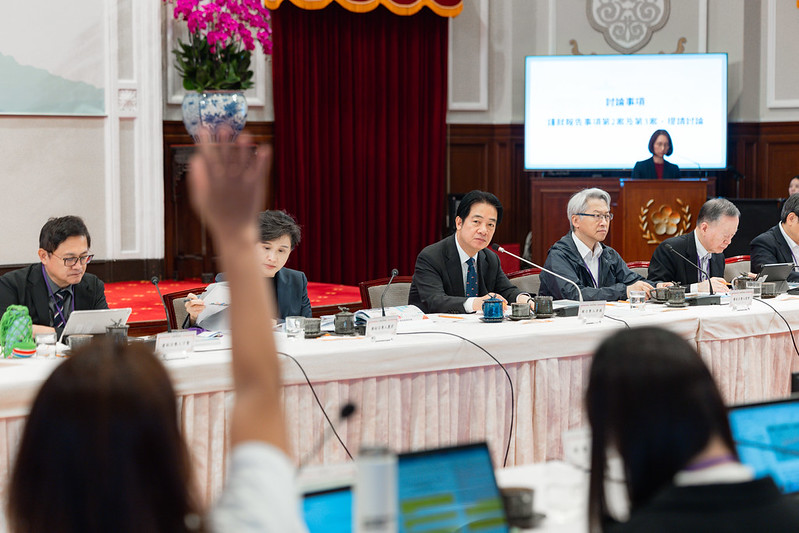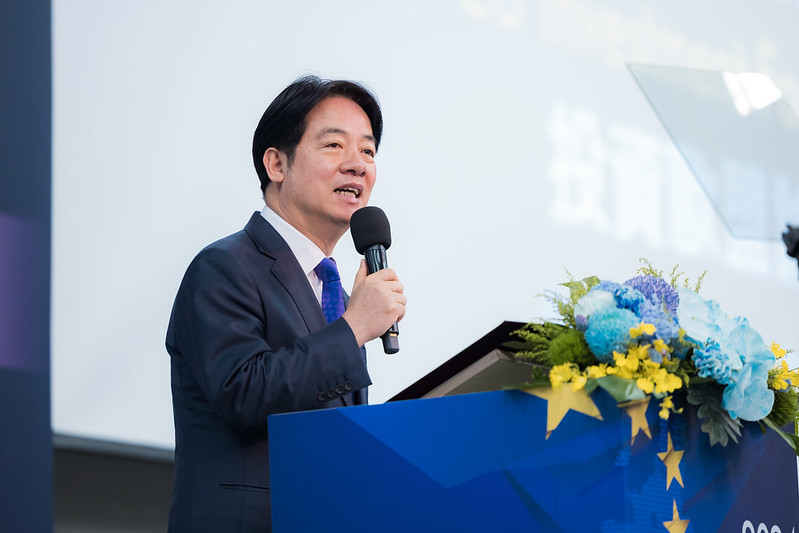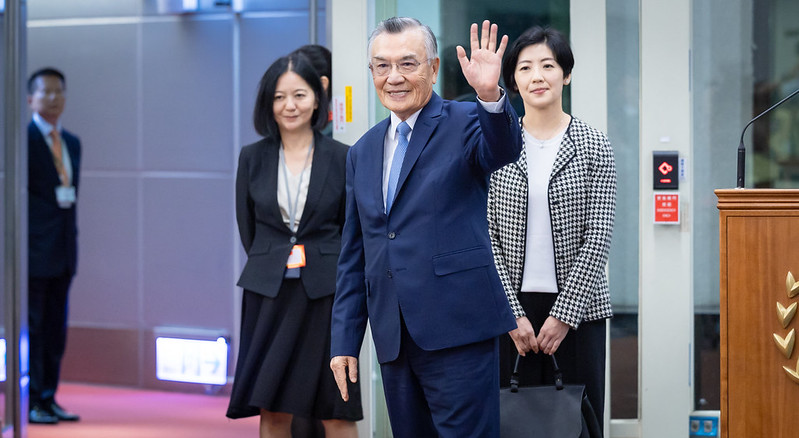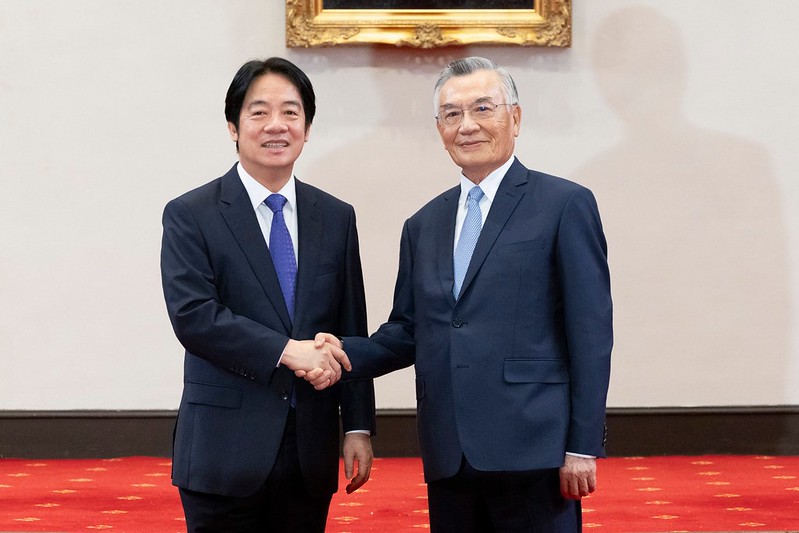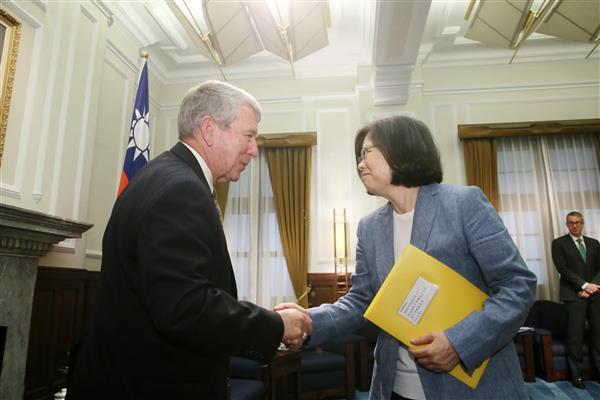News & activities
 News releases
News releases
Meeting on the morning of September 8 with directors from Semiconductor Equipment and Materials International (SEMI) and the Taiwan Semiconductor Industry Association (TSIA) as well as the top executives of a number of semiconductor firms from home and abroad, President Tsai Ing-wen described the measures being taken by the government to help improve the environment in Taiwan for development of the semiconductor industry, and called on her guests to invest boldly and together participate in the next wave of economic development in Taiwan.
In remarks, the president began by thanking the TSIA for the many years it has spent helping member companies to develop markets and acting as a bridge for communication between industry and government. Through its efforts, the TSIA has enabled the government to adopt policies better suited to the needs of industry.
The president stated that the semiconductor industry is one of the mainstays of Taiwan's economy, and that the government will do everything it can to help semiconductor firms deal with the challenges they face, facilitating the availability of increased inputs while simultaneously spurring conservation measures designed to ensure stable supplies of water and electric power. In addition, for companies interested in investing in Taiwan, the government will help them acquire sufficient land. The proper government agencies are already proceeding forward with measures such as those described above.
The president also mentioned that Taiwan is actively developing green energy and will carry out legislative amendments to structure its electric power market in a manner that is conducive to the development of green energy. More and more companies now hope to purchase green energy, and even treat the availability of green energy as a prerequisite condition for investments. Accordingly, providing plentiful, transparent, and price-competitive green power is more than just a trend prompted by environmental concerns; it is also a fundamental task in the effort to improve our investment climate. "We'll be working hard on all these fronts," said the president.
Commenting on Taiwan's quest to attract talent from abroad, President Tsai stated that the question of how to attract people to Taiwan is one of the issues that Taiwanese companies are most concerned about. Human resource databases of government agencies and the resources of Taiwan's overseas diplomatic posts have been integrated into a single Internet portal site for overseas recruitment. At the same time, our government is also designing a platform that foreign nationals can use to apply online for jobs in Taiwan, and simplifying the visa and residency permit systems with an eye to getting more international talent to come to Taiwan within a few years, living and working side-by-side with us. This would be a boost to industrial innovation here, she said.
The president said that Taiwan is now pushing for an across-the-board upgrading of industry, maintaining a core focus on an Industry 4.0 initiative and technologies associated with the Internet of Things. The semiconductor industry will continue to play a key role in the development of new industries, and there is room for the emergence of more applications. Taiwan is a well-developed and stable economy that offers strong potential and excellent opportunities for cooperation. The government, moreover, is determined to revitalize industry, so the president called on her guests to invest boldly and together participate in the next wave of economic development in Taiwan.
The visiting delegation was led by Denny McGuirk (President and Chief Executive Officer, SEMI), and included the following members: Nicky Lu (盧超群, Chairman, Etron Technology; Chairman, TSIA); Terry Tsao (曹世綸, President, SEMI Taiwan); Po Wen Yen (顏博文, Chief Executive Officer, United Microelectronics); Pei Ing Lee (李培瑛, President, Nanya Technology); Jason C.S. Chang (張虔生, Chairman, Advanced Semiconductor Engineering (ASE)); Tien Wu (吳田玉, Director & Chief Operating Officer, ASE); Martin Anstice (President and CEO, Lam Research); Alex Wang (王其國, President, Powerchip Technology); Sue Lin (林淑玲, Vice Chairman, Hermes Epitek); Tetsuo Tsuneishi (常石哲男, Chairman of the Board, Tokyo Electron Limited); Mary G. Puma (Chairman, Axcelis Technologies); Tadahiro Suhara (須原忠浩, Representative Director & President, SCREEN Semiconductor Solutions); Bertrand Loy, President and Chief Executive Office, Entegris); Chairman of the Board, Ebara Corporation); and Daniel Liao (廖振隆, President of Asia Pacific Operations, Lam Research).
